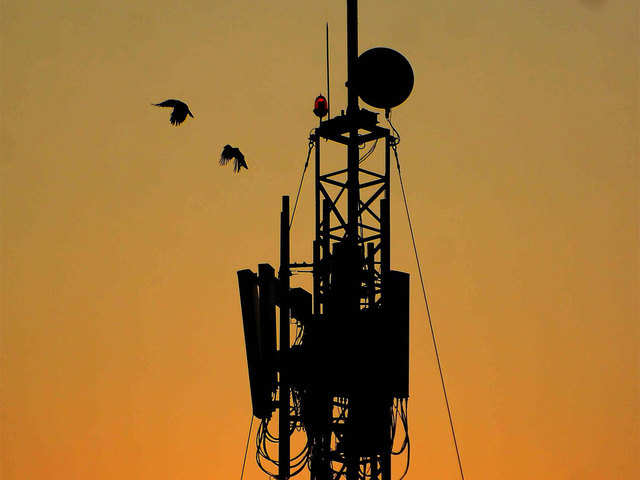Risk of duopoly in telecom sector higher than before: Analyst
The room for manoeuvre is now very less for operators. The situation is particularly grave for Voda Idea.
by PTI
NEW DELHI: With the Supreme Court on Friday taking a strong view of non-compliance of its order on payment of statutory dues by telecom firms, situation for Vodafone Idea is "particularly vulnerable" and the risk of duopoly in the sector is higher than before, according to an analyst.
"There is no question that this is bad news for the telecom industry. It makes situation of Vodafone Idea particularly vulnerable, even more than it was," Mahesh Uppal, director at consulting firm Com First India said.
He also said the risk of a duopoly in telecom sector is higher than before.
At present there are three private players in the Indian mobile market -- Bharti Airtel, Vodafone Idea and Reliance Jio -- besides the ailing state-owned operators BSNL/MTNL.
Uppal said the room for maneuver is less now for the operators, but added that if the government saw the situation as long-term problem, it could consider a change in policy.
"But it (what happened today) wasn't unexpected seeing SC's position in last 2-3 hearings...given its past position that operators had signed licence agreement and hence obliged to pay. So, it was unlikely that there would have been any dilution in that position," Uppal pointed out.
The Supreme Court on Friday directed the managing directors and directors of telcos and other firms to explain why contempt action be not taken against them for non-compliance of its order to pay adjusted gross revenue (AGR) of Rs 1.47 lakh crore to the Department of Telecommunications.
Taking strong note of the non-compliance of its order, a bench of Justice Arun Mishra, Justice S Abdul Nazeer and Justice M R Shah expressed anguish over the order passed by DoT's desk officer, staying the effect of its verdict in AGR matter.
"We don't know who is creating this nonsense. Is there no law left in country... It is better not to live in this country and rather leave the country," the bench observed.
In all, as many as 15 entities owe the government Rs 1.47 lakh crore -- Rs 92,642 crore in unpaid licence fee and another Rs 55,054 crore in outstanding spectrum usage charges.
These dues arose after the Supreme Court, in October last year, had upheld the government's position on including revenue from non-core businesses in calculating the annual Adjusted Gross Revenue (AGR) of telecom companies, a share of which is paid as licence and spectrum fee to the exchequer.
VIL is confronted with the dues worth Rs 53,000 crore that it is expected to pay the government - its liabilities add up to Rs 24,729 crore of spectrum dues and another Rs 28,309 crore in licence fee, and the company had earlier warned of shutdown if no relief was given.
Vodafone Idea in its earnings statement on Thursday had sounded out warnings on "material uncertainty" casting "significant doubt" on its ability to continue as going concern.
The company's ability to continue as a going concern is essentially dependent on a positive outcome of its modification application in the Supreme Court on the AGR matter and any relief from the telecom department on payments, VIL had said on Thursday.
Last week, Vodafone Chief Executive Officer Nick Read had said the situation in India is critical, following the AGR ruling of the Supreme Court. The British telecom major holds 45.39 per cent stake in VIL.
Rival Bharti Airtel's liabilities added up to nearly Rs 35,586 crore, including licence fee and spectrum usage charge dues. Airtel had recently said that previously-mentioned material uncertainty on the group's ability to continue as a going concern "no longer exists" after the recent Rs 21,502 crore fund raising by it.
Most of the remaining liability is with state-owned BSNL/MTNL and some of the shut/bankrupt telecom companies.